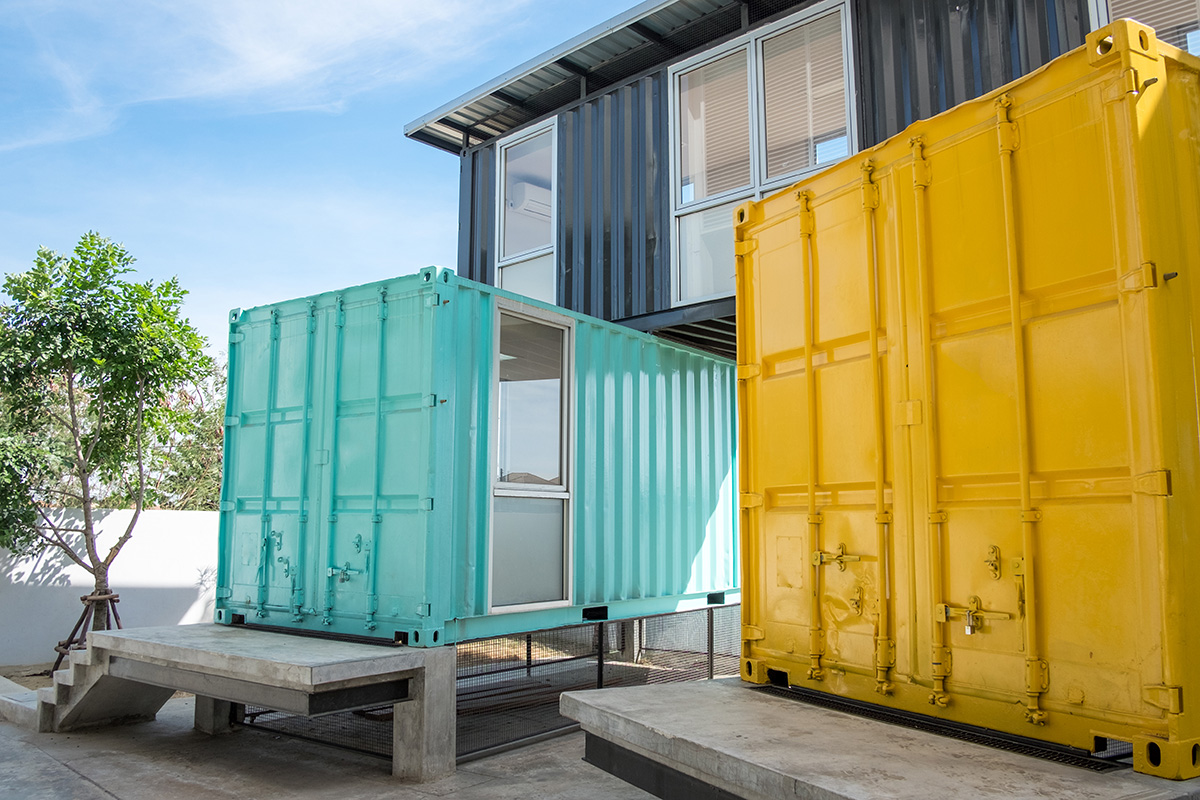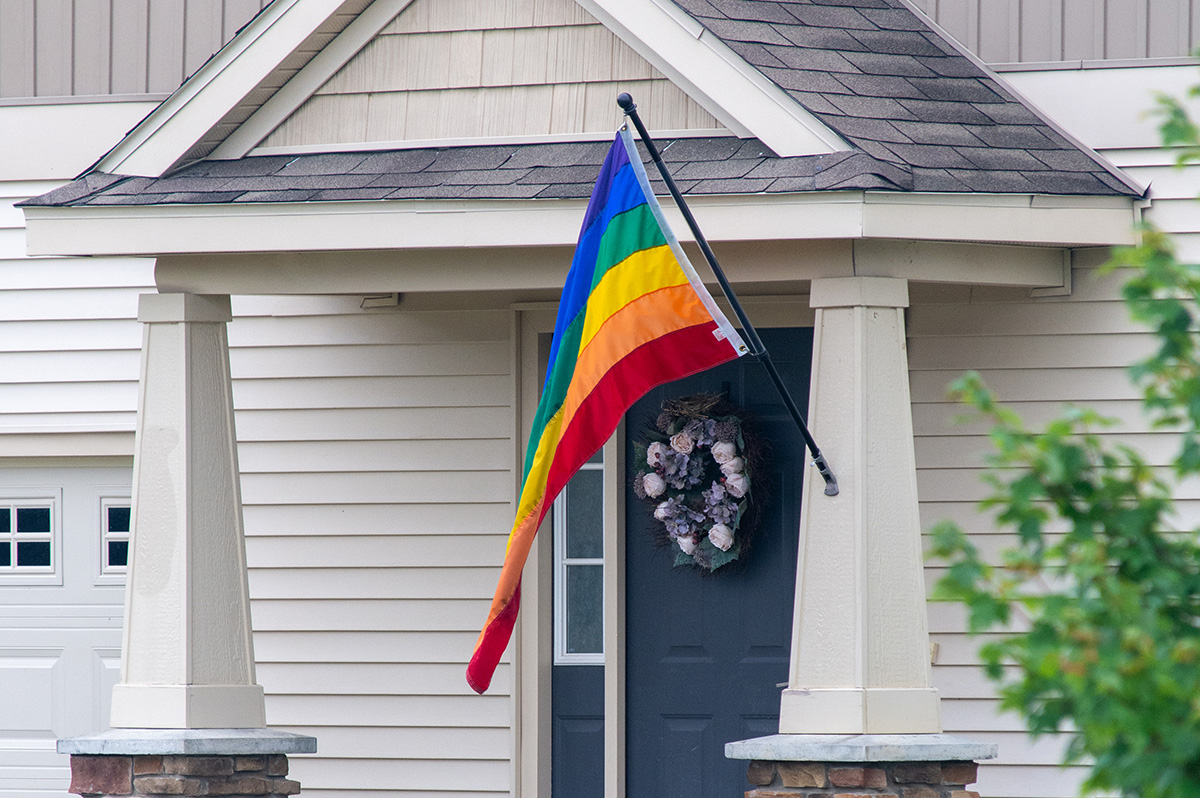Real Estate
New Year, more of the same D.C. housing trends
Sales remain robust in first quarter of 2019


New year, hot market! After a weaker than usual fall market of 2018, the 2019 market came in with a bang. Sales are robust, buyers are entering the market at a rapid pace (more on this later), days on market are short, and off-market activity has increased. So will this fast pace of the market continue throughout the year? What else do we anticipate for real estate in 2019? As I reviewed my 2018 real estate market predictions, I realized that although much has changed since early 2018, much more has stayed the same. So without further ado, here are my predictions for the 2019 real estate market.
AMAZON – HOW REAL IS THE HYPE?
Everyone is asking how much impact Amazon’s HQ2 will have on our area. While it is too early to tell exactly what the HQ2 future holds, we can tell you what we’ve seen so far. A few Amazon executives have already relocated to our area. We are working and have worked with several buyers from Seattle and have seen a couple of others bring offers on our listings. However, this first round of relocations has been limited and hasn’t impacted the market on a large scale.
We have also seen the Amazon effect in two other areas. First, renters (mostly millennials living in D.C., Arlington, and Alexandria) have decided they want to buy before the large relocations begin, causing a buyer influx in the market. The second effect is a significant increase in consumer confidence locally. While the political climate (which we will talk about later) is a bit more unpredictable with furloughs and unstable interest rates, the news of Amazon’s HQ2 has given both buyers and sellers confidence about our local real estate market — always a good thing. With the news of the New York location possibly being reconsidered, this means only good things for our area. You can read more about our predictions for Amazon’s HQ2 at thegoodhartgroup.com.
FEBRUARY 2019 UPDATE
This week, Amazon announced it’s halting plans for its other HQ2 site in Queens, N.Y., due to a lack of support from local government officials and the community. Amazon officials insist that pulling out of the Long Island City location does NOT mean they’re searching for a new HQ2 site. Its expansion plans will proceed focused on the National Landing site outside D.C. and Nashville hub locations. Amazon’s 17 other hubs will absorb the remaining jobs. However, local officials are not ruling out the possibility of more jobs at Amazon’s Crystal City location. Stephanie Landrum, president and CEO of the Alexandria Economic Development Partnership, said the state’s package was structured to allow for the possibility of up to 37,500 local Amazon jobs, an additional 50% on top of the planned 25,000. Of course, more area jobs means only good news for home values in our region.
MILLENNIALS: HIGH EXPECTATIONS
This resurgence of high-end millennial buyers who entered the market in 2018 also created demand for new construction and renovated homes. Why are these younger luxury buyers so interested in newer renovated properties, especially in our historic town? Many are dual-income families who do not have the time, vision, or cash to update an older home. But, these buyers still want their home to look good. We millennials have come of age in a visual society (thank you, Instagram and Pinterest) where we expect everything to look good, all the time.
This desire for new and improved homes has meant intense competition over the few available lots and small homes on lots over 5,000 square feet that could be expanded and renovated.
Unfortunately for many buyers looking for starter homes in our market, most single-family homes in close-in neighborhoods listed under $800,000 were scooped up in multiple offer situations by builders making all cash, no contingencies offers. As a result, many first and second time buyers were edged out of the running.
THE POLITICAL CLIMATE: IT’S ALL ABOUT POTRUXI
So, what in the heck is PoTruXi? ProTruXi is an abbreviation for the three people who will shape the course of the national economy this year.
Po = Jerome Powell, Chair of the Federal Reserve. What the Fed does over the next year will matter, big time. Interest rates have been especially volatile and quite a bit higher than they were at this time last year. It’s been predicted that rates would continue to rise throughout 2019, but we have seen the Fed pump the brakes a bit on their plans to raise rates. Rising interest rates play a huge role in the health of the real estate market as they can dramatically impact affordability. We anticipate rates to rise only subtly this year – versus the expectation at the end of 2018 that they would continue to rise aggressively. This is good news!
Tru = President Trump – and actually, Congress too. What happens here in D.C. has major ramifications for our economy and our real estate market, both nationally and locally. With a Democratic House of Representatives and a Republican Senate, the balance of power could provide to be a positive for the market. Why? Often it means that extremist policy on either side of the aisle is unlikely to be passed which improves consumer confidence. The big unknown locally is how we will weather another possible government shutdown. The January shutdown didn’t have a large impact on our market as a whole. However, if Trump and Congress continue their stalemate, it may cause more of a problem in the future.
Xi = China’s President Xi. The ability to strike a trade deal between the U.S. and China will also matter. The current turbulence around trade is fueling a lack of confidence and stock market volatility. Many U.S. companies are reliant on growth in China and tariffs on construction materials have made both renovating and building less affordable. We already have a chronic shortage of housing, especially affordable housing, so I would anticipate trade becoming more of a hot button issue as we get closer to elections.
THE FUTURE OF TECHNOLOGY
Last year, I predicted biometrics and artificial intelligence would make their appearance as new trends in the industry. Biometrics has become more mainstream in our everyday world as consumers embraced the iPhone X and Clear security at the airport. However, we still haven’t seen it become mainstream in the real estate world but the whispers continue that it is coming.
I also predicted artificial intelligence would become a part of the real estate space and there were significant strides in this arena in 2018, both inside and outside of real estate. On the real estate front, last year I referenced a futuristic sign that could interact with consumers that was “teased” at a conference I attended. In 2018, this sign was unveiled by Compass! In fact, the moment Robert Reffkin, the CEO of Compass, introduced the idea of the sign, a spark of interest about this growing company was ignited for our team. Of course, in June of 2018, we officially joined Compass and are so proud to be a part of a company that is advancing the world of real estate forward. With the hiring of Microsoft’s former Chief of Technology, Compass is also rolling out an artificial intelligence program that will improve both the consumer and agent experiences.
THE REAL STORY OF 2019
While all of these factors will play a role, the real story of 2019 market in the DC Metro areais historically low inventory which is impacting buyers and sellers of all agents in all price points. While our market has experienced low inventory for the last two or three years, we are seeing even more fierce competition and bidding wars already in 2019. After being strategically staged and marketed with a coming soon campaign, one of our listings in Rosemont recently had 13 offers and sold well over asking with no contingencies. This is great news for sellers and not-so-great news for buyers. It will be critical for buyers to work with an agent plugged into the market.
Because of this low inventory, we are seeing more off-market activity, with fewer homes going on the active market.
As a result, most active buyers aren’t even hearing about available homes until they are already under contract.
THE BOTTOM LINE – OUR MARKET IS STRONG
So, what does all of this mean when taken together? More buyers in the market and fewer sellers mean that we are likely going to be in a sellers’ market in 2019. That being said, sellers still need to stage and price their homes appropriately to generate interest in today’s highly visual world. When they do, they are being rewarded with excellent contracts. Sellers can capitalize on the stalemated interest rates and excitement over Amazon. Buyers can lock in still low rates before they rise.
All in all, the first half of 2019 is shaping up to be a strong market. We will be closely watching the political climate and the plans for Amazon’s expansion to see how things look for the second half of the year. In the meantime, if we can help you with your real estate goals in any way, please don’t hesitate to reach out. We are always here to help!
Allison Goodhart DuShuttle is with Compass Real Estate. Led by Sue & Allison Goodhart, they have been named a Top Agent by both Washingtonian and Northern Virginia magazines. Allison can be reached at 703-362-3221 or [email protected].
Real Estate
Unconventional homes becoming more popular
HGTV show shines spotlight on alternatives to cookie cutter

While stuck in the house surrounded by snow and ice, I developed a new guilty pleasure: watching “Ugliest House in America” on HGTV. For several hours a day, I looked at other people’s unfortunate houses. Some were victims of multiple additions, some took on the worst décor of the ‘70s, and one was even built in the shape of a boat.
In today’s world, the idea of what a house should look like has shifted dramatically. Gone are the days of cookie-cutter suburban homes with white picket fences. Instead, a new wave of architects, designers, and homeowners are pushing the boundaries of traditional housing to create unconventional and innovative spaces that challenge our perceptions of what a home can be.
One of the most popular forms of alternative housing is the tiny house. These pint-sized dwellings are typically fewer than 500 square feet and often are set on trailers to allow for mobility. Vans and buses can also be reconfigured as tiny homes for the vagabonds among us.
These small wonders offer an affordable and sustainable living option for those wishing to downsize and minimize their environmental footprint. With clever storage solutions, multipurpose furniture, and innovative design features, tiny homes have become a creative and functional housing solution for many, although my dogs draw the line at climbing Jacob’s Ladder-type steps.
Another unusual type of housing gaining popularity is the shipping container home. Made from repurposed shipping containers, these homes offer a cost-effective and environmentally friendly way to create modern and sleek living spaces. With their industrial aesthetic and modular design, shipping container homes are a versatile option for those contemplating building a unique and often multi-level home.
For those looking to connect with nature, treehouses are a whimsical and eccentric housing option. Nestled high up in the trees, these homes offer a sense of seclusion and tranquility that is hard to find in traditional housing. With their distinctive architecture and stunning views, treehouses can be a magical retreat for those seeking a closer connection to the natural world.
For a truly off-the-grid living experience, consider an Earthship home. These self-sustaining homes use recycled construction materials and rely on renewable energy sources like solar power and rainwater harvesting. With their passive solar design and natural ventilation systems, Earthship homes are a model of environmentally friendly living.
For those with a taste for the bizarre, consider a converted silo home. These cylindrical structures provide an atypical canvas for architects and designers to create modern and minimalist living spaces. With curved walls and soaring ceilings, silo homes offer a one-of-a-kind living experience that is sure to leave an impression.
Barn homes have gained popularity in recent years. These dwellings take the rustic charm of a traditional barn and transform it into a modern and stylish living space. With their open, flexible floor plans, lofty ceilings, and exposed wooden beams, barn homes offer a blend of traditional and contemporary design elements that create a warm and inviting atmosphere, while being tailored to the needs and preferences of the homeowner.
In addition to their unique character, barn homes also offer a sense of history and charm that is hard to find in traditional housing. Many of them have a rich and storied past, with some dating back decades or even centuries.
If you relish life on the high seas (or at a marina on the bay), consider a floating home. These aquatic abodes differ from houseboats in that they remain on the dock rather than traverse the waterways. While most popular on the West Coast (remember “Sleepless in Seattle”?), you sometimes see them in Florida, with a few rentals available in Baltimore’s Inner Harbor and infrequent sales at our own D.C. Wharf. Along with the sense of community found in marinas, floating homes offer a peaceful retreat from the hustle and bustle of city life.
From tiny homes on wheels to treehouses in the sky or homes that float, these distinctive dwellings offer a fresh perspective on how we live and modify traditional thoughts on what a house should be. Sadly, most of these homes rely on appropriate zoning for building and placement, which can limit their use in urban or suburban areas.
Nonetheless, whether you’re looking for a sustainable and eco-friendly living option or a whimsical retreat, there is sure to be an unconventional housing option that speaks to your sense of adventure and creativity. So, why settle for a run-of-the-mill ranch or a typical townhouse when you can live in a unique and intriguing space that reflects your personality and lifestyle?
Valerie M. Blake is a licensed Associate Broker in D.C., Maryland, and Virginia with RLAH @properties. Call or text her at 202-246-8602, email her at [email protected] or follow her on Facebook at TheRealst8ofAffairs.
Real Estate
Convert rent check into an automatic investment, Marjorie!
Basic math shows benefits of owning vs. renting

Suppose people go out for dinner and everyone is talking about how they are investing their money. Some are having fun with a few new apps they downloaded – where one can round up purchases and then bundle that money into a weekly or monthly investment that grows over time, which is a smart thing to do. The more automatic one can make the investments, the less is required to “think about it” and the more it just happens. It becomes a habit and a habit becomes a reward over time.
Another habit one can get into is just making that rent check an investment. One must live somewhere, correct? And in many larger U.S. cities like New York, Chicago, D.C., Los Angeles, Miami, Charlotte, Atlanta, Dallas, Nashville, Austin, or even most mid-market cities, rents can creep up towards $2,000 a month (or more) with ease.
Well, do the math. At $2,000 per month over one year, that’s $24,000. If someone stays in that apartment (with no rent increases) for even three years, that amount triples to $72,000. According to Rentcafe.com, the average rent in the United States at the end of 2025 was around $1,700 a month. Even that amount of rent can total between $60,000 and $80,000 over 3-4 years.
What if that money was going into an investment each month? Now, yes, the argument is that most mortgage payments, in the early years, are more toward the interest than the principal. However, at least a portion of each payment is going toward the principal.
What about closing costs and then selling costs? If a home is owned for three years, and then one pays out of pocket to close on that home (usually around 2-3% of the sales price), does owning it for even three years make it worth it? It could be argued that owning that home for only three years is not enough time to recoup the costs of mostly paying the interest plus paying the closing costs.
Let’s look at some math:
A $300,000 condo – at 3% is $9,000 for closing costs.
One can also put as little as 3 or 3.5% down on a home – so that is also around $9,000.
If a buyer uses D.C. Opens Doors or a similar program – a down payment can be provided and paid back later when the property is sold so that takes care of some of the upfront costs. Knowledgeable lenders can often discuss other useful down payment assistance programs to help a buyer “find the money.”
Another useful tactic many agents use is to ask for a credit from the seller. If a property has sat on the market for weeks, the seller may be willing to give a closing cost credit. That amount can vary. New construction sellers may also offer these closing cost credits as well.
And that, Marjorie, just so you will know, and your children will someday know, is THE NIGHT THE RENT CHECK WENT INTO AN INVESTMENT ACCOUNT ON GEORGIA AVENUE!
Joseph Hudson is a referral agent with Metro Referrals. Reach him at 703-587-0597 or [email protected].
Real Estate
Top buyer-friendly markets for the LGBTQ community
Home should be a place where you can be fully yourself

Buying or selling a home is one of the most meaningful financial and emotional decisions a person can make. For LGBTQ+ individuals and families, that journey can also come with unique considerations — from finding truly inclusive neighborhoods to working with professionals who understand and respect who you are.
The good news? Across the United States, there are increasingly buyer-friendly housing markets where LGBTQ+ home buyers and sellers can find opportunity, affordability, and community. When paired with the right representation, these markets can offer not only strong financial value, but peace of mind.
For more than 30 years, GayRealEstate.com has been the leading source of LGBTQ+ real estate representation, helping LGBTQ+ buyers and sellers connect with vetted, LGBTQ+ friendly real estate agents who understand the nuances of fair housing, legal protections, and inclusive service.
Below, we explore top buyer-friendly markets for the LGBTQ+ community, along with practical tips to help you navigate the process with confidence.
What Makes a Market Buyer-Friendly?
A buyer-friendly market isn’t just about lower prices — especially for LGBTQ+ home buyers. It often includes:
- Increased housing inventory (more choices, less pressure)
- Slower price growth or stabilized pricing
- Greater negotiating power for buyers
- Established or emerging LGBTQ+ communities
- Local protections and inclusive policies
- Access to LGBTQ+ friendly real estate agents and resources
Markets that combine affordability with inclusivity can be especially attractive for first-time gay home buyers, same-sex couples, and LGBTQ+ families planning for long-term stability.
Top Buyer-Friendly Markets for LGBTQ Home Buyers
1. Austin & San Antonio, Texas
Once known for extreme competition, many Texas metros have shifted into more buyer-friendly territory due to increased inventory.
Why it works for LGBTQ+ buyers:
- Strong LGBTQ+ communities, especially in Austin
- More negotiating leverage than in prior years
- Diverse neighborhoods at varying price points
Tip: Texas does not have statewide LGBTQ+ housing protections, making it especially important to work with an experienced LGBTQ+ friendly realtor through GayRealEstate.com.
2. Columbus & Cincinnati, Ohio
Ohio cities continue to attract buyers looking for value without sacrificing culture or inclusivity.
Why it works:
- Lower median home prices
- Growing LGBTQ+ populations
- Strong healthcare, education, and job markets
These cities are particularly appealing for LGBTQ+ buyers relocating from higher-cost coastal markets.
3. Richmond, Virginia
Richmond has become a standout for LGBTQ+ home ownership thanks to affordability, history, and progressive growth.
Highlights:
- Inclusive local culture
- Buyer-friendly price trends
- Walkable neighborhoods popular with LGBTQ+ professionals
4. Minneapolis–St. Paul, Minnesota
The Twin Cities consistently rank high for LGBTQ+ quality of life and legal protections.
Why LGBTQ+ buyers love it:
- Strong anti-discrimination laws
- Stable home values
- Excellent resources for LGBTQ+ families
Minnesota offers one of the safest environments for LGBTQ+ home buyers and sellers navigating the real estate process.
5. Jacksonville & Tampa Bay, Florida
Florida remains complex for LGBTQ+ buyers, but some metros still offer strong buyer opportunity.
What to know:
- Increased inventory = more negotiating power
- Coastal lifestyle at lower cost than South Florida
- Local LGBTQ+ communities continue to grow
Because statewide protections vary, partnering with a GayRealEstate.com LGBTQ+ friendly real estate agent is essential.
Finding LGBTQ-Friendly Neighborhoods
Not every “affordable” neighborhood is inclusive — and safety, comfort, and belonging matter.
When searching for LGBTQ+ friendly neighborhoods:
- Look for visible LGBTQ+ organizations, events, and businesses
- Research local non-discrimination ordinances
- Ask your agent about lived experiences, not just statistics
- Talk to neighbors and local LGBTQ+ groups
Agents in the Gay Real Estate Network often provide insight that listing data alone cannot.
The Importance of LGBTQ Real Estate Representation
While fair housing laws exist, LGBTQ+ housing discrimination still happens — sometimes subtly, sometimes overtly.
Working with an LGBTQ+ friendly real estate agent helps ensure:
- Respectful communication
- Advocacy during negotiations
- Awareness of legal protections
- A safer, more affirming experience
GayRealEstate.com has spent over three decades building the most trusted network of gay realtors, lesbian real estate agents, and LGBTQ+ friendly real estate professionals nationwide.
Legal Protections Every LGBTQ Buyer and Seller Should Know
Federal protections now include sexual orientation and gender identity under the Fair Housing Act, but enforcement and local laws vary.
Before buying or selling:
- Understand your state and local protections
- Know how to document discriminatory behavior
- Work with professionals who take advocacy seriously
- Use trusted LGBTQ+ real estate resources
GayRealEstate.com agents are experienced in helping clients navigate these realities with confidence.
Tips for LGBTQ Home Buyers & Sellers
- Get pre-approved early to strengthen your buying position
- Interview agents and ask direct questions about LGBTQ+ experience
- Don’t ignore your instincts — comfort matters
- Plan long-term: community, schools, healthcare, and protections
- Use LGBTQ+-specific resources rather than generic searches
Buyer-friendly markets create opportunity — but representation creates security.
Whether you’re a first-time gay home buyer, a same-sex couple relocating, or an LGBTQ+ seller preparing for your next chapter, choosing the right market and the right representation makes all the difference.
For over 30 years, GayRealEstate.com has been the trusted leader in LGBTQ+ real estate, connecting buyers and sellers with professionals who understand the importance of inclusion, advocacy, and respect.
Your home should be more than a place to live — it should be a place where you can be fully yourself.
Scott Helms is president and owner of Gayrealestate.com.


















